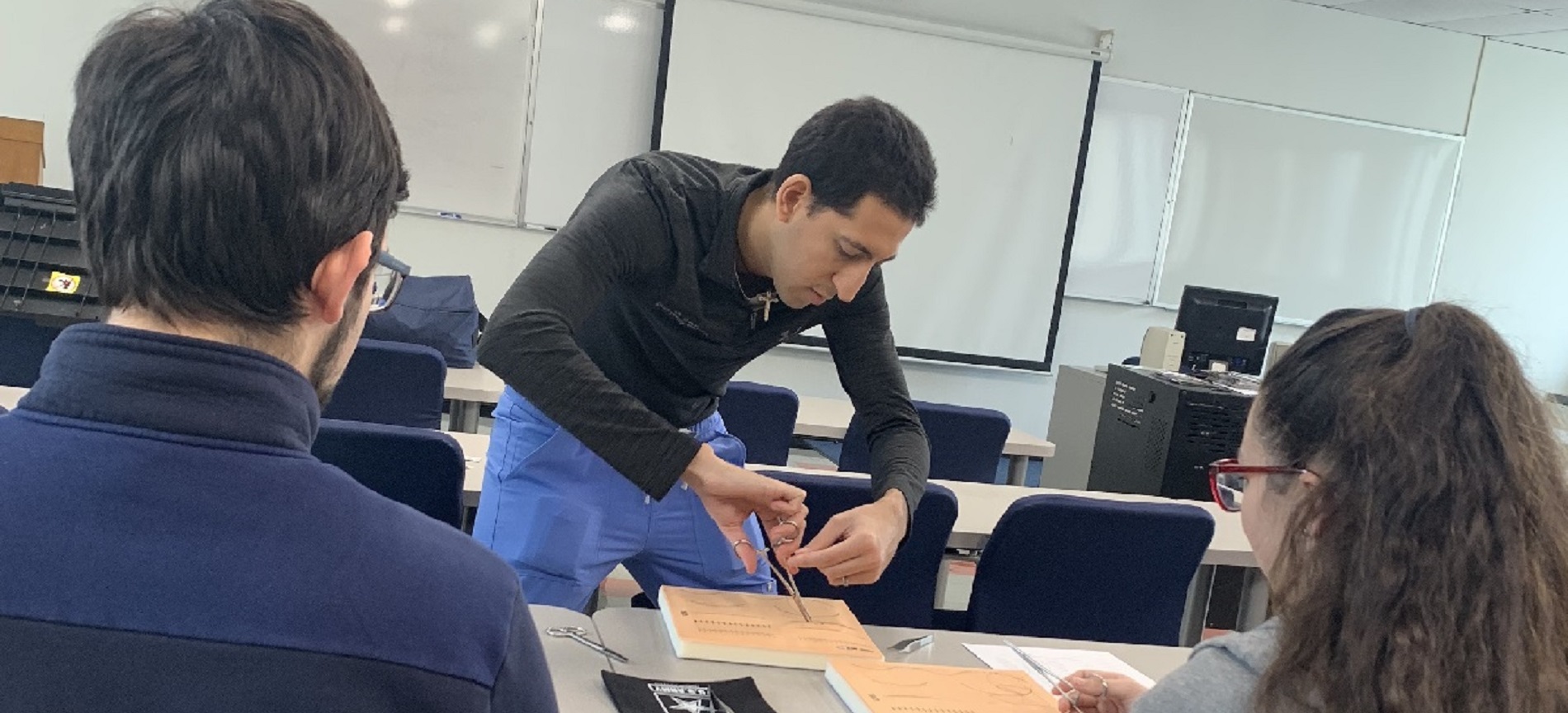
Healthcare Professions
Career Paths
The following are potential career paths suited for the pre-health major:
A dentist is a doctor and clinician dedicated to the highest standards of health through prevention, diagnosis, and treatment of oral diseases and conditions. They play a key role in the early detection of oral cancer and other systemic conditions of the body that manifest themselves in the mouth. They also identify other health conditions, illnesses, and other problems that sometimes show up in the oral cavity before they are identified in other parts of the body.
An M.D. (Medical Doctor) and D.O. (Doctor of Osteopathic Medicine) are trained through several years of both coursework and clinical practice. While both degrees mean your doctor is a licensed physician, their training differs slightly and has a unique perspective on care.
- Doctors of Osteopathic Medicine use a unique whole person approach to help prevent illness and injury. They practice in all areas of medicine and are trained to listen and assist their patients to help them get healthy and stay well. Osteopathic Physicians focus on looking beyond your symptoms to understand how lifestyle and environmental factors impact your well-being. They strive to help the patient be truly healthy in mind, body, and spirit not just free of symptoms.
- Medical Doctors are the more commonly known kind of physician. They practice an allopathic approach to care. This approach focuses on research-based medicine and uses medication or surgery to treat and manage different conditions.
A Nurse Anesthetist provides pain medication (anesthesia) care for patients before, during, and after surgery. They administer medications to keep patients asleep or pain-free during surgery and constantly monitor every biological function of the patient’s body.
A Nurse Practitioner, similar to a Physician Assistant, is a medical professional who prescribes medicine and treatment, diagnose illnesses, and in some states operate with “full practice authority,” meaning they are not required to work under the supervision of a doctor.
- Difference between NPs and PAs:
- NPs – educated to serve a specific population, and rather than being present in a patient surgery, Nurse Practitioners attend to the patient’s bedside throughout hospitalization.
- PAs – do not have to commit to a specific specialty. PAs can jump from one specialty to another because of their level of education. Autonomous in their field, meaning they may also work independently from a lead physician.
An Occupational Therapist enable people of all ages to live life to its fullest by helping patients promote health and prevent, or live better with, injury, illness, or disability. Occupational Therapists treat injured, ill, or disabled patients through the therapeutic use of everyday activities. They help these patients develop, recover, improve, as well as maintain the skills needed for daily living and working.
An Operating Room Nurse, also called Perioperative Nurses and Surgical Nurses, are in charge of patients scheduled for surgery. There are two types of Operating Room Nurses. Scrub Nurses hand surgical instruments to the physician, while Circulating Nurses oversee nursing care during the procedure and ensure the operating room remains sterile.
Pharmacists are healthcare professionals who specialize in the right way to use, store, preserve, and provide medicine. They guide the patient on how to use medications and provide information about any adverse effects of what the patient takes. Furthermore, pharmacists fill prescriptions issued by doctors and other healthcare professionals. Lastly, they contribute to research and testing of new drugs.
Physical Therapists, or PTs, help injured or ill individuals improve movement and manage pain. They are an important part of preventative care, rehabilitation, and treatment for patients with chronic conditions, illnesses, or injuries. PTs review patients’ medical history, diagnose patients’ functions, develop individualized plans of care for patients, and many more to help patients increase their mobility and prevent further pain or injury.
Physician Assistants, or PAs, are medical professionals who diagnose illnesses, develop and manage treatment plans, prescribe medications, and are under the direction and supervision of a licensed physician. They are versatile and collaborative. Physician Assistants practice in every state and in every medical setting and specialty, improving healthcare access and quality.
A Veterinarian is a medical professional who protects the health and well-being of animals. They also diagnose and control animal diseases and treat sick and injured animals. Furthermore, Veterinarians advise owners on proper care of their pets.
